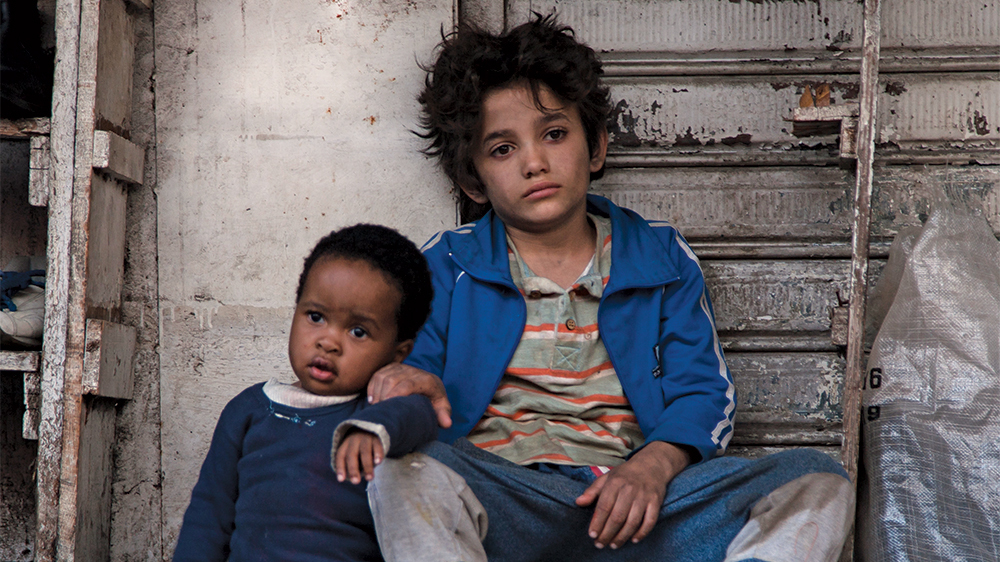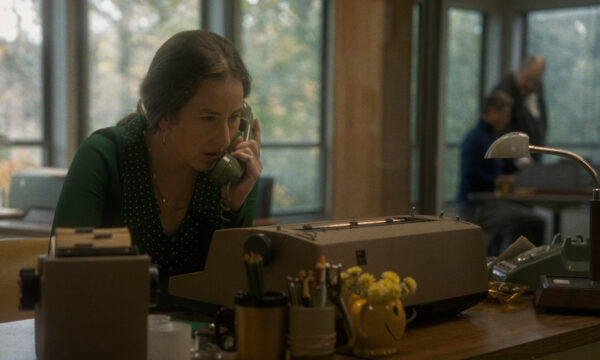Capernaum (Capharnaüm)

Nadine Labaki has brought something unique to Cannes. What appears at first a slightly absurd courtroom drama morphs dramatically, and daringly, into an extended experiment in social realism. It has a captivating central relationship between a woebegone child and babbling tot. But it meanders, as if footage of the pair was too good to edit and shape into a cohesive story.
Capharnaüm, a title taken from the ancient biblical ruins, depicts a strangling, dense and labyrinthine Lebanese inner city. Poverty seeps onto the streets. A young boy (Zain Alrafeea) is suing his parents in court. Why? “For giving me life,” he suggests. It’s a bleak, implausible opening that suggests a hectoring dissection of societal ills or a high-concept thought experiment on the nature of law and justice. It tends to neither. Instead we’re offered lengthy flashbacks of Zain’s descent into squalor and misery, explicitly instigated by his sister’s selling into child slavery.
Zain leaves his abusive parents, meeting kindly Ethiopian immigrant Rahil (Yordanos Shiferaw) who offers a home while employing him as an auxiliary babysitter for her baby Yonas (Treasure Bankole). This allows her to work at a funfair canteen, although her relative financial stability is offset by concerns over residency papers. Formal legalities oppress many of the characters, reducing the means and agency of the poor inhabitants while ironising the courtroom premise that provides their moral framework. Despite the intellectually flimsy conceit, what follows is an exasperating, remarkable passage that pushes Zaid and Yonas into the alarming, frantic urban throng.
The unreal city is made real with two astonishing performances. Zain doesn’t stretch much past sweary abrasiveness but maintains an engaging, pained stoicism, while Yonas hits the acting marks, offering a few appreciated moments of instinctive infant hi-jinks. The crowd flowed, so many, but here we discern two small figures in the mass.
This isn’t a conventionally structured work and it dissatisfies in a basic sense. But the closing embrace of melodrama is more problematic. It deadens our empathy towards their hardships. By overreaching for the human element, Labaki makes the film’s underlying sloppiness less forgivable. And much is made of Zaid’s permanently morose expression, one that provides the final, queasy pay off.
Joseph Owen
Capernaum (Capharnaüm) does not have a UK release date yet.
Read more reviews from our Cannes Film Festival 2018 coverage here.
For further information about the event visit the Cannes Film Festival website here.
























Facebook
Twitter
Instagram
YouTube
RSS